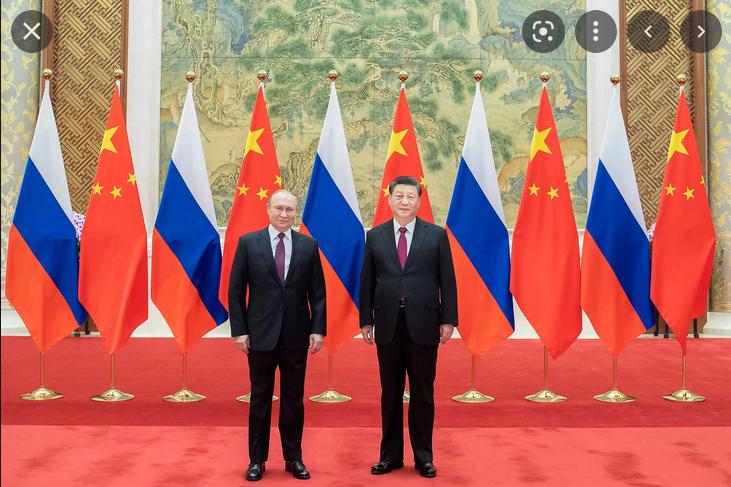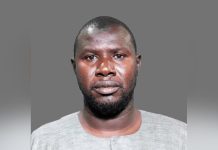Africa-Press – Gambia. Both Moscow and Beijing are using economic leverage, coercion, and hybrid approaches to advance their interests in the region,” Stoltenberg said, referring to the Middle East and North Africa.
Nato’s concerns about the growing influence in Africa of Russia and China, which has pumped billions into the continent’s infrastructure under its transcontinental Belt and Road Initiative, has prompted the bloc to turn more of its attention to the region but many of those fears – at least in the case of China – may not be warranted, observers say.One of the areas of concern is Mali, where France has been a firm ally in the fight against jihadists and rebel forces who have killed hundreds and displaced thousands.
Then last year France fell out with the Malian military government and Mali clinched a deal with Russia to bring in military trainers, mostly from the pro-Kremlin Wagner mercenary group.
“Facing increasing pressure from the international community, coup leader Colonel Assimi Goïta turned to Wagner to effectively help preserve his grasp on power,” Marie Jourdain and Petr Tůma, visiting fellows at the Atlantic Council’s Europe Centre, said in a report in June.
While Mali has turned to Russia, neighbouring Mauritania will be the recipient of a Nato “defence capacity-building package … to help address border security, irregular migration, and terrorism”, according to Stoltenberg. Nato also agreed to additional support for Tunisia and Jordan.
Mauritania and Mali lie in the unstable Sahel region, an area that stretches from east to west across the continent and that is a strategic point for Beijing’s trade ambitions in Africa. Chinese investments in the region are vast – spanning Senegal, Niger, Chad, Guinea, Nigeria and Sudan, with recent advances in Burkina Faso.John Calabrese, head of the Middle East-Asia Project at American University, said he did not believe that Russia and China posed major, direct security threats in the Middle East or Africa to US and European interests.
In the case of China, its interest in security and stability on the continent overlapped with those of the US and Europe.China is, above all, concerned with protecting and further expanding its commercial activities in these regions. This, in turn, requires security and stability, lest Chinese loans, investments, assets, access to raw materials, and expatriate workers come under threat,” he said.
Calabrese said China and Russia could be problematic by supplying military equipment unconditionally that could be used by repressive regimes against their people.
He said that from the Western vantage point, Russian or Chinese “security” roles of some kind could be used to prop up or cultivate influence with authoritarian leaders, which could then be used to carve out non-transparent deals, including privileged access to natural resources.
Nevertheless, China had showed neither the interest nor capacity to conduct military operations of the kind that France had in Mali. Moreover, China generally had far less experience and granular understanding of the “human terrain” in the Sahel to underpin such involvement, Calabrese said.
“Even with its experience and commitment of effort, France has struggled to stabilise Mali – a warning sign to China,” he said.Joseph Siegle, the director of research at Africa Centre for Strategic Studies, National Defence University, said Nato had historically been focused on European security, specifically threats from Russia.
In recent years, he said, there had been growing attention on Africa, primarily due to the concern from a rising number of refugees.
“I believe Nato’s latest statements vis-à-vis Africa and the Middle East are largely a result of Russia’s growing influence in North Africa, which poses a threat to Nato’s southern flank,” Siegle said.
For example, he said, Russia was conducting military operations in Libya, with the aim of installing its proxy in Tripoli. Russia is also the largest arms supplier to Algeria and has close relations with Egypt and Sudan.
“Nato is also concerned that Russia will gain leverage over key refugee and migration routes to Europe, putting Russia in a position to cause a political crisis in Europe as it did with the manipulation of Syrian refugee flows,” Siegle said.
Russian mercenaries, meanwhile, are operating in Libya, Sudan, Mali, and the Central African Republic. “Russia’s growing influence in Africa has been destabilising for Africa and poses a genuine threat to Europe,” Siegle saidNato has not generally deployed forces in Africa. Rather, it has been mainly France, some EU countries, and the US that have supported efforts to counter violent extremism in the Sahel.
Again, China has not really been involved in these efforts, so it is not a significant factor in these considerations, Siegle of the Africa Centre for Strategic Studies said.
“Russia, however, has mounted a series of aggressive disinformation campaigns in West Africa that have attempted to provoke and amplify anti-French, anti-West, and anti-democratic narratives,” he said.
Siegle said Russia had also deployed 1,000 mercenaries from the Wagner Group to Mali but these personnel did not have the capabilities of the 4,500 French and EU forces leaving the country.
“That is, while presented as security support to Mali, the deployment of the Wagner mercenaries is largely political – to shore up the Malian junta and cause the French and EU to depart,” Siegle said.
“The human rights abuses committed by the Wagner and Malian forces are likely to, in fact, worsen the security situation in the country.”
Mohammed Soliman, a scholar at the Middle East Institute, said that following the 2001 terrorist attacks in the United States, Nato worked hand in hand with African and Middle Eastern nations on countering terrorism by providing intelligence to train local military and security forces.
However, “the focus on Russia and China in Africa and the Middle East is a reflection of the current era of great power competition, as Nato considers Moscow and Beijing systemic rivals”.
He said the Russian invasion of Ukraine magnified the West’s fear of Russia’s threat to Europe and China’s challenge to the US-led world order.
For More News And Analysis About Gambia Follow Africa-Press






